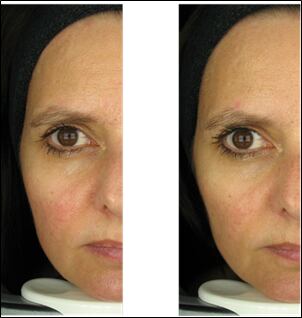Naringenin is a flavanone naturally occurring in the peel of citrus fruit and tomato skin, and the isomer naringenin-chalcone has been reported to have potent anti-allergic properties.
Mibelle Biochemistry took this information and developed its tetra-carboxy-methyl-naringenin-chalcone (TCM-NC) as a new cosmetic active, with the initial aim of treating the skin condition rosacea.
In rosacea skin, an overexpression and release of cathelicidin by surface keratinocytes leads to an inflammatory reaction in neighbouring keratinocytes. If not treated, a chronic inflammation can develop inducing increased local blood flow and angiogenesis.
Dermatology influence
Mibelle Biochemistry managing director Dr Fred Zuelli told CosmeticsDesign-Europe.com that the cosmetics industry, although not focused on treatment, can be influenced by developments in dermatology to produce products for skin care.
“If patients go to the doctor with rosacea they are not always given creams or treatments,” he explained. “People often go to the cosmetics counter or pharmacy instead to look for skin care products.”
The semisynthetic active derived from the natural product naringenin, is an example of how natural products can be improved for application as cosmetic active ingredients, according to the Mibelle Biochemistry boss.

Due to the aims and benefits of TCM-NC, the active can also be used to treat sunburn as well as being ideal in skin care products for sensitive skin and as an anti-inflammatory.
Studies
The newly developed compound TCM-NC was tested in a clinical study on volunteers with mild rosacea and was shown to decrease capillary blood flow and visibly reduce facial redness, which proves its efficacy.Recent studies have reported that naringenin-chalcone has potent anti-allergic and anti-inflammatory properties by reducing the LL37 induced release of inflammatory cytokines.
The placebo controlled clinical study was performed on 11 female Caucasian volunteers with rosacea skin.
After 56 days of treatment with a cream containing TCM-NC, rosacea redness was visibly reduced compared to the untreated skin area.
The new active was also tested for water solubility and is currently awaiting its INCI confirmation.
